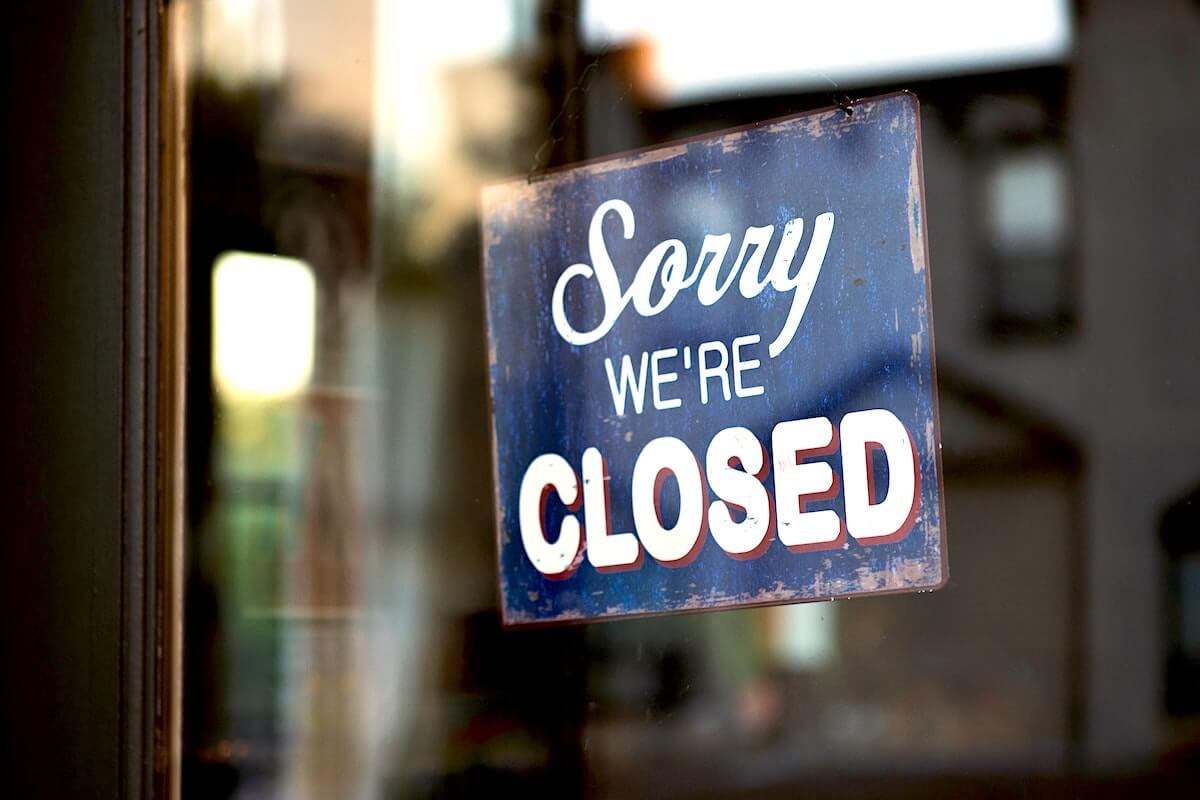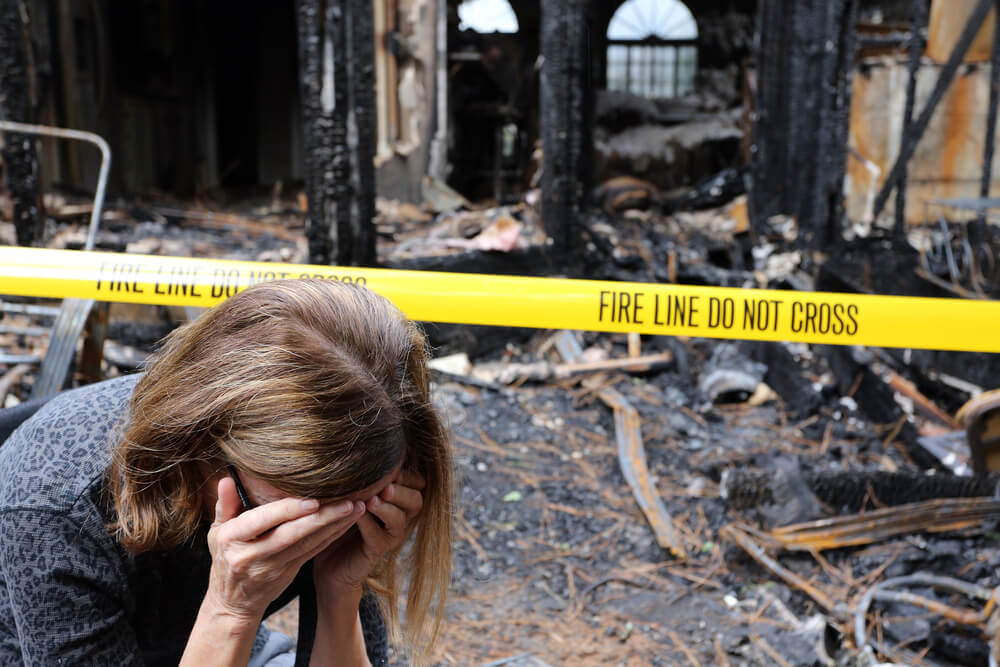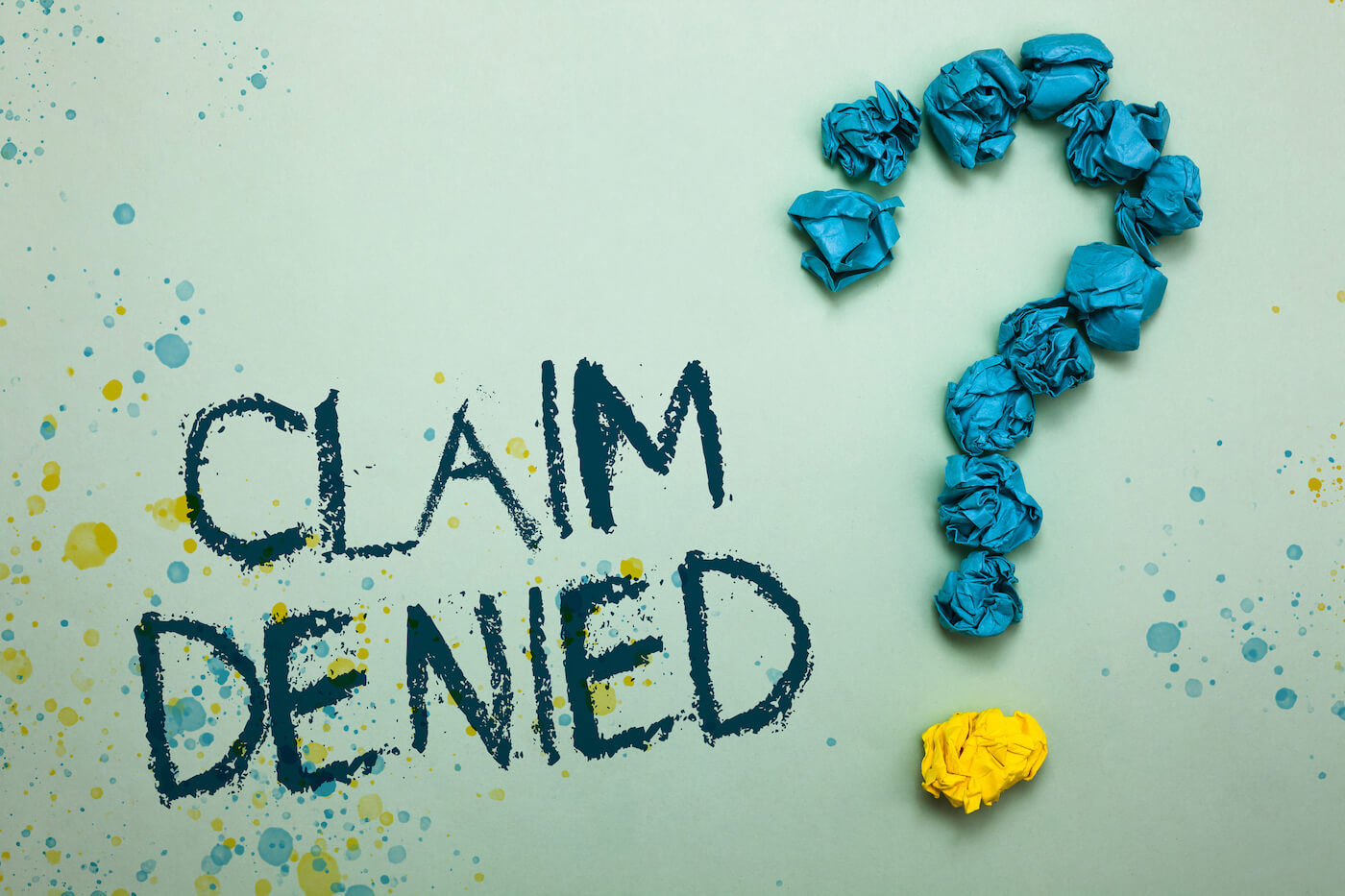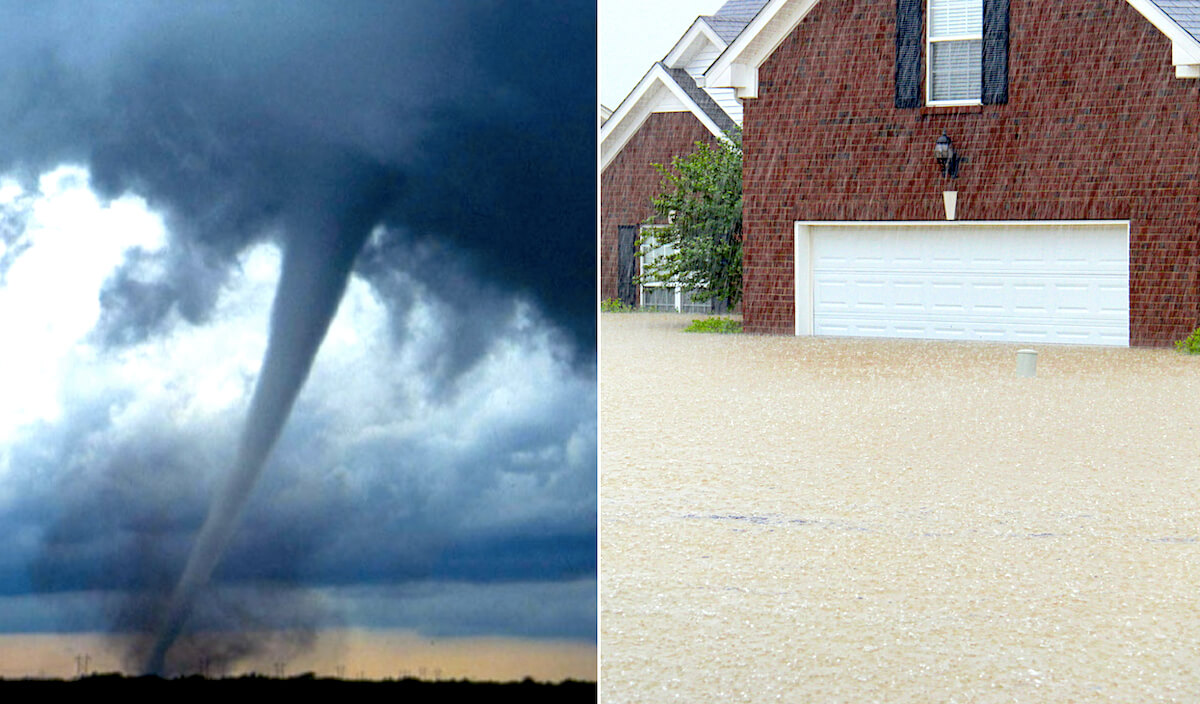Homeowners insurance protects your house against unexpected losses. Generally, homeowners insurance will cover plumbing and leaks. However, it will not cover certain maintenance-related issues or flooding.
Today, we’re explaining everything you need to know about how homeowners insurance covers plumbing and appliance leaks, including what’s covered, what isn’t covered, and how to maximize your insurance claim.
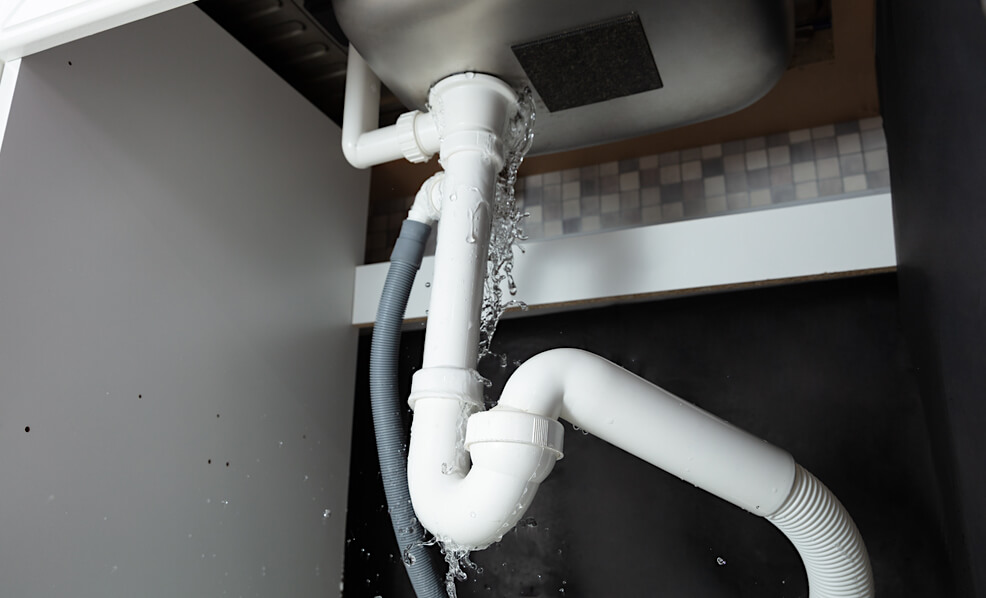
Most Homeowners Insurance Policies Cover Sudden and Accidental Water Damage
Your home insurance policy should cover damage to your home caused by plumbing issues and appliance leaks, assuming the issue was sudden and accidental.
If your pipes suddenly burst, for example, and water floods your home, then your home insurance policy should cover the cost of repairing this damage, except for the actual pipe that burst, in many cases. It should also cover the cost of gaining access to the pipe and the repairs to replace any drywall, flooring or tile work during that process to get to the burst pipe.
Home insurance is designed to protect policyholders against unexpected damages – like a random burst pipe. It’s not designed to protect policyholders against preventable damages – like mold caused by a cracked pipe dripping behind a wall for five years without being repaired.
How Home Insurance Covers Plumbing Issues and Water Damage
A standard home insurance policy will cover damage caused by plumbing issues or appliance leaks, including any damage to your property and possessions.
A standard home insurance policy includes both dwelling coverage and personal property coverage:
Dwelling Coverage: Dwelling coverage helps pay for damage to the structure of your home. If your home is damaged by a covered peril (like a burst pipe), then dwelling coverage will cover home repairs. It can cover the cost of tearing out and replacing water-damaged drywall, for example, and replacing any water-damaged flooring.
Personal Property Coverage: Personal property coverage compensates you for any possessions damaged during a plumbing issue or appliance leak. If the bathroom above your living room floods, for example, and drips water onto your $2,000 4K TV, then your insurance company should pay to replace your damaged TV, as well as the damaged areas of your home.
Please note that you need to pay your deductible before coverage kicks in. Your insurance policy may also have coverage limits. If your home requires $120,000 of repairs, for example, and your coverage limit is $100,000, then you will have to pay the remaining $20,000 out of pocket.
Home Insurance Won’t Cover Maintenance-Related Plumbing Issues or Long-Term Leaks
Not all plumbing issues and leaks are automatically covered by home insurance.
If your pipes have been leaking for months, for example, and you haven’t taken any action, then your home insurance company may deny your claim. However, some policies do allow for “hidden” damage, but there are usually a set number of days from the date of discovery for you to report that damage, otherwise coverage will be denied.
Or, if your plumbing system is falling apart due to poor maintenance, then your insurer may also deny your claim. As the policyholder, you have a responsibility to maintain your property. If you fail to maintain your property, then your insurer can rightfully deny your claim.
We see something similar for roof damage claims. If your roof was damaged in a recent hailstorm, for example, then you may be able to make a legitimate claim to repair that hail damage. If your roof was damaged in a wind or hailstorm, however, and you refuse to repair it, and then it creates a roof leak causing water damage during the next big rainstorm because of your damaged roof, then your insurer may deny your claim.
Which Plumbing Issues Are Not Covered by Home Insurance?
Depending on your plumbing issue, your home insurance claim could be denied. Some of the most common plumbing issues that are rarely covered by home insurance include:
Damage from Unresolved Maintenance Problems: If your home has a maintenance issue and you refuse to repair it, then your insurance company is not required to cover it. If your kitchen sink has had a continuous leak for years, for example, and you never repaired it, then your claim for mold damage underneath your kitchen countertops may be denied.
The Cost of Repairing or Replacing the Source of the Water Damage: Most home insurance policies cover the damage caused by the plumbing issue but not the actual source of that damage. If your old washing machine caused $10,000 of water damage to your basement, for example, then your insurer may cover the $10,000 of home repairs, although you’ll need to pay to replace your own washing machine.
Water Backups from Outside Sewers or Drains: If your water has backed up from an outside sewer or drain, then your insurance claim may be denied. Standard home insurance policies do not cover damage caused by outside sewers or drains. However, you may be able to purchase additional sewer or water backup coverage.
Flood Damage: Standard home insurance policies never cover flood damage. It doesn’t matter if the flood damage occurred during a hurricane, storm, or other event. Some insurance companies let you purchase additional flood insurance, although many insurance companies do not offer any type of flood insurance. If you live in a flood-prone region, then you may be able to purchase flood insurance through FEMA’s National Flood Insurance Program (which is the only flood insurance option for millions of Americans living in flood-prone areas).
FAQs About Homeowners Insurance, Plumbing, and Leaks
Some of the most common questions we get about homeowners insurance, plumbing, and appliance leaks include:
Do Insurance Companies Cover Broken Pipes? If your pipe suddenly breaks, then your insurance company should cover the cost of repairing any water damage caused by that broken pipe. However, your insurance will not cover the cost of repairing or replacing the actual pipe itself.
What is Gradual Damage? Many insurers will use terms like ‘gradual damage’ when dealing with your water damage insurance claim. Gradual damage occurs slowly over time, causing damage to a property. A leaking pipe that sits unrepaired for months or years, for example, is causing gradual damage to your home.
How Am I Supposed to Know About Damage Behind My Walls? Your insurer may deny your claim because a broken pipe behind your walls was causing gradual damage. How are you supposed to detect issues like this? Ultimately, it’s the responsibility of the homeowner to maintain the property. Take steps to prevent leaks in your home. Check your water bill for unexpected increases. Listen for drips behind your walls. Look for discolorations or other signs of a leak.
Do Insurance Companies Ever Cover Gradual Damage? Most insurance policies exclude plumbing issues and leaks caused by gradual damage. However, every policy is different. Talk to your insurance company to determine if gradual damage is covered. If you believe a claim was denied for no good reason, then consider hiring a public adjuster to assist and maximize your insurance payout.
What Happens If I Discover Additional Water Damage or Mold Months Later? Many homeowners pay to repair water or plumbing damage, only to find additional mold damage on their property months later. In this case, the insurer may agree to cover this new damage even though it’s technically a type of gradual damage. If your home has experienced gradual damage after an initial insurance claim, then you may be able to make a claim.
What About Mold Coverage? Most home insurance policies exclude mold coverage. Mold is a type of gradual damage. If a leak behind your walls is left undetected over a long period of time, then it can cause mold. Unless you have specifically added mold coverage to your home insurance policy, mold is probably not covered.
What Happens if a Tree Falls on My Roof During a Storm and Causes Water Damage? If a tree falls through your roof and creates a roof leak, and then water pours in through the hole in your roof to cause water damage, then you should be able to file a claim for this event under your home insurance policy. Your insurer should cover the cost of repairing the hole in your roof and any water damage that was a result of the damage cause by the tree on your roof. They will also pay for the removal of the tree and any temporary protection you use until an adjuster can inspect the damages. It is your duty to protect your property from further damage until they are able to inspect the home or business.
What is Resulting Damage? You might also see the term ‘resulting damage’ come up during a claim. Resulting damage is different from initial damage. If your old dishwasher explodes and causes water to flood your home, then your insurance company will categorize the water damage as resulting damage. Your insurer will cover this water damage, but the insurer will not cover the cost of replacing your dishwasher.
What to Do If a Water Damage or Plumbing Claim is Denied
Insurance companies have a lot of reasons to deny a water damage insurance claim. What should you do if your claim is denied?
First and most importantly, ask your insurance company for a full explanation. Ask your insurance company exactly why your claim was denied. You have the right to understand exactly which part of your policy excludes your claim. Don’t be afraid to ask for further clarification on certain items – especially if the insurance company is being vague or making assumptions about the cause of the damage.
Second, determine which person actually made the decision to deny your claim – like a contractor, adjuster, or a supervisor. The contractor or adjuster sent by your insurance company might have denied your claim because of perceived pre-existing maintenance issues, for example. A second professional may have a different opinion.
Third, ask an agent or representative for a review or second opinion. Some insurance companies will give you the chance to appeal a contentious claim.
If none of the above steps get you anywhere, or you want help with any part of the process contact a Public Adjuster for help.
[big_contactus]
Recommendation: Hire a Public Adjuster To Help Increase Your Plumbing Insurance Claim Payout
Public adjusters are licensed insurance industry professionals with a proven ability to maximize insurance claim payouts.
An experienced public adjuster can turn a denied claim into an approved claim – even when dealing with messy situations like burst pipes and other plumbing issues. A good public adjuster helps navigate the intricacies of an insurance claim to obtain the fair settlement you deserve in order to recover from a loss.
If your insurance company is dragging its feet, denying your claim, or offering a low payout, then it’s in your best interest to hire a public adjuster.
A public adjuster works with the insurance company to settle a claim on your behalf. The adjuster knows the strategies insurance companies use to avoid paying plumbing or leaking pipe insurance claims. A good adjuster also knows how to challenge these claims and turn a denial into an approval.
ClaimsMate makes it easy to hire the best public adjuster for your unique home insurance claim.
A ClaimsMate public adjuster can help you expertly navigate the plumbing damage insurance claim from start to finish, negotiating on your behalf to secure the highest possible payout. Contact ClaimsMate today for a free consultation.
Read More Here: Does Homeowners Insurance Cover Plumbing and Leaks?
